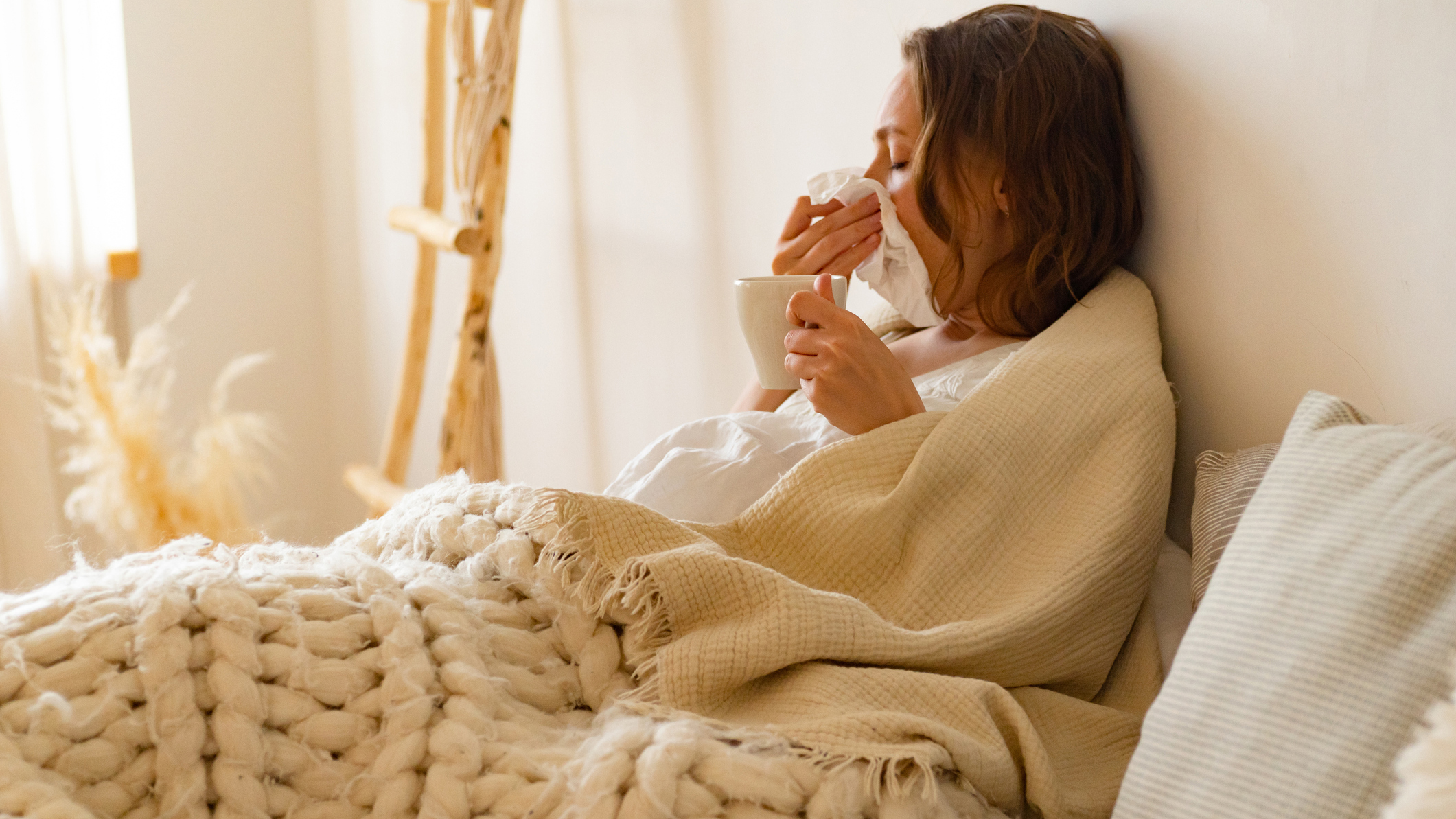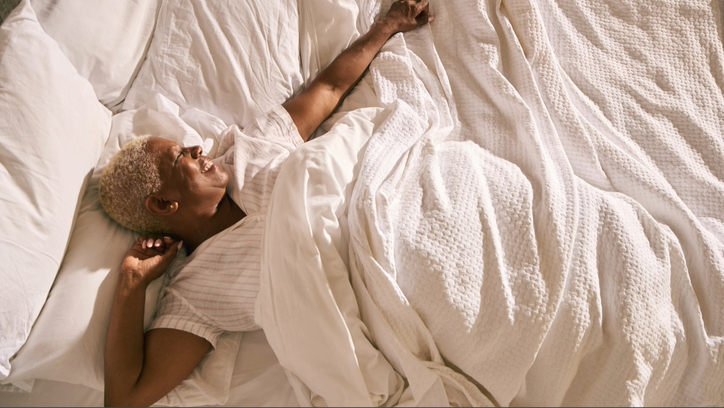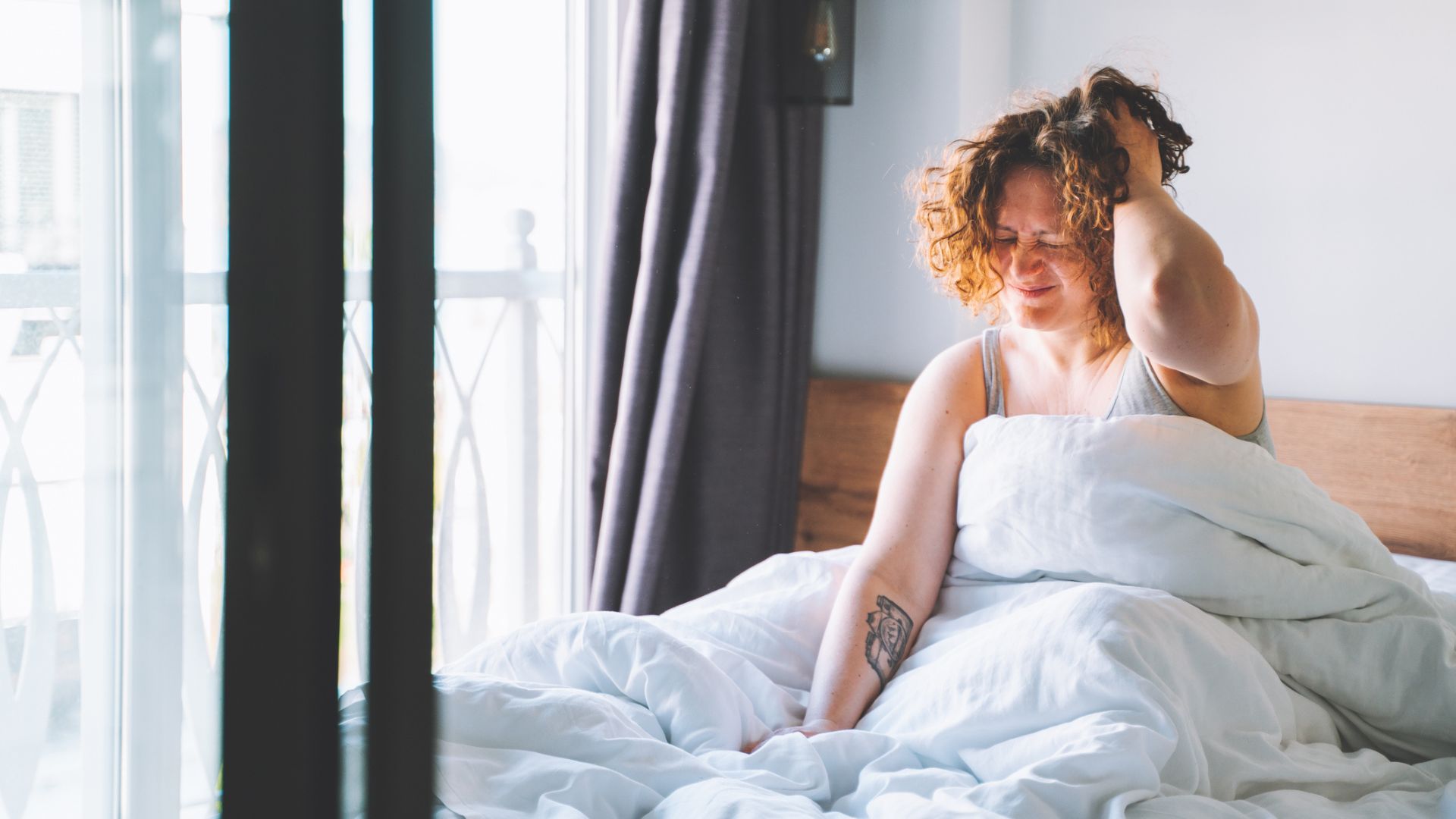Getting a good night’s sleep might stop you from getting another cold — here’s how
Sleeping well can boost your immunity and protect you from the common cold this winter

We’re nearing the end of winter, and if you’ve managed to make it through without getting struck down by a seasonal illness, you're doing very well. But it seems there are more bugs than ever going around right now, so how can you avoid them and make it to the spring happy and healthy? The answer could be a good night’s sleep.
Many concoctions and biohacks claim to boost your immune system, but often there’s little evidence backing up the effectiveness of these methods. However, one proven and easy trick to boost your immune system, save yourself from getting a cold and even recover more quickly from a cold, is getting consistently good sleep.
We ask Dr. Frederic Bertley, renowned scientist, immunologist, and science communicator, as well as the president and CEO of the Center of Science and Industry (COSI), exactly how sleep boosts our immune system and the science behind our cold-fighting mechanisms. We also share our tips on how to sleep well so you can reduce the risk of infection.

Dr. Frederic Bertley is a scientist (immunologist), educator, and advocate for critical and innovative thinking. He is President & CEO of the Center of Science and Industry (COSI), where he is leading the nationally ranked science center into the 21st Century through innovation and programming
Can a good night's sleep save you from getting a cold?
The benefits of good sleep are well documented, from improved both mental and physical health. One key role sleep plays is regulating and maintaining a healthy immune system.
REM sleep (rapid eye movement) is a stage of sleep where we experience dreams. It's responsible for emotional processing, memory consolidation and brain development.
Dr Bertley says “8 hours [or plus] of sleep allows for REM sleep to be established and this will help your immune system stay active and better fight viruses that cause colds.”
While you will still experience REM sleep if you sleep for less than 8 hours, getting enough sleep guarantees you get enough restorative REM sleep, as your time spent in REM increases throughout the night.
Also, if you sleep for over 8 hours, you're likely to experience more sleep cycles, which equals more time in deep sleep and REM. But exactly how does this translate to fighting off colds?

How sleep boosts your immune system
Production of stem cells
Stem cells are cells that can transform into other cells and act as a repair system for the body. This means that they can transform into cells that actively fight infections, so healthy stem cell production results in a strengthened immune system.
Sign up to get the BEST of Tom's Guide direct to your inbox.
Get instant access to breaking news, the hottest reviews, great deals and helpful tips.
“Sleep stimulates the production of hematopoietic stem cells which are precursors to several cells including monocytes and T cells, both critical in fighting infections,” explains Dr Bertley.
Studies have found that disrupted sleep impacts this process and can even lead to overproduction of these cells, which, although it may sound like a good thing, can actually lead to inflammation.
Increased vaccination efficacy
One way to decrease your risk of getting ill over the winter is through the flu vaccine. However, there are factors that change how effective these vaccines are, and a key one is sleep.
“Sleep has been linked to increased vaccination efficacy,” Bertley explains, “specifically, after vaccination, individuals with healthier sleep habits have elevated B cell activity and produce higher levels of vaccine-specific antibodies responsible for anti-viral activity against pathogens.”
Put simply, better sleep results in more immune system activity that helps fight off infection. Deep sleep has also been proven to improve the efficiency of vaccines, as well as lowering chemicals that cause inflammation and strengthening your immune system daily.
Production of cytokines
“During REM sleep ("rapid eye movement") our bodies produce cytokines, which are proteins that help boost the immune response to invading pathogens,” Dr Bertley explains.
A pathogen is an organism that causes disease. This can include bacteria, viruses, and fungi, and they are responsible for causing illnesses, like colds.
This means that even if you come into contact with a virus or bacteria, your body should be able to fight it off so you don’t develop an illness.
“REM sleep is considered the best as it is during this time that our bodies are optimized to produce hormones, cytokines, chemokines, and other important chemicals that will help mediate strong immune activity and increase responses to infectious agents,” he continues.

Can a good night's sleep help you recover from a cold more quickly?
Not only can good sleep prevent you from becoming ill, but it can also help you recover more quickly if you have an infection or virus.
“Effective hours of sleep (8+ hours) both help our immune systems to be active and prevent infections… [and] enable our immune systems to provide as strong of a response as possible to help our bodies recover faster should we actually get a cold.”
So, if you start to feel run down, ensure you prioritize getting proper rest, aiming for over 8 hours of sleep a night, as well as reducing your activity during the day.
What’s the impact of sleep deprivation on the immune system?
As you can imagine, not getting enough sleep or ongoing sleep deprivation can be detrimental to our immune system, making it more likely to become ill.
Dr Bertley explains this: “Lack of sleep leads to lower production of important proteins such as interleukins and other cyto and chemokines that help stimulate immune responses. Also, lack of sleep leads to lower antibody production against invading pathogens.”
A disrupted sleep can also impact the amount of deep sleep we get. Deep sleep is a restorative sleep stage responsible for cell regeneration and production, tissue and bone repair and regeneration, and energy restoration. If you don’t get enough time in this sleep stage, these key processes won’t happen which can have a knock on impact on your immune system.

Our top tips to sleep better
If you’re determined to stay fit and healthy for the last few weeks of winter, follow these top tips for consistently good and restorative sleep.
Keep a regular sleep schedule
Going to bed and waking up at the same time every day (even at the weekend) helps regulate our circadian rhythm and energy levels. A regular sleep schedule means your body will recognize when it should feel sleepy and when it should feel energized, and the production of melatonin (the sleepy hormone) and cortisol (the hormone released when we wake up) will be in line with our schedules.
This makes it more likely that we’ll sleep through the night and make it easier to fall asleep at night. This also regulates our sleep cycle, meaning key sleep stages like REM and deep sleep are unlikely to be disrupted.
Avoid caffeine and alcohol
Caffeine has a half life of 5 hours, which means it can take as long as 10 hours for it to no longer be found in your system. So, avoiding caffeine after midday will make it easier to fall asleep and stay asleep throughout the night.
Alcohol on the other hand makes it easy to fall asleep but as the effects wear off, you’re likely to experience frequent nighttime awakenings as well as reduced REM sleep and increased light sleep, meaning even if you sleep for over 8 hours, it won’t be quality, restorative rest.

Pay attention to your sleep hygiene
Sleep hygiene refers to your lifestyle factors and habits that can impact your sleep. This includes your diet, activity levels, your environment, the type of activities you enjoy before bed, as well as ensuring you that you are sleeping on the best mattress for your sleep needs.
Good sleep hygiene can include eating three balanced meals throughout the day and avoiding sugary snacks at night, reducing screen time in the evenings and ensuring your bedroom is a clean, quiet, cool and dark place that you associate with sleep (instead of watching TV or working.)

Lauren is an experienced writer and editor in the health and lifestyle industry and has led many campaigns and projects that deliver news, advice, and research on all things sleep. As the Sleep Features Editor for Tom’s Guide, Lauren writes, commissions and edits sleep and mattress content, from in-depth how-tos in sleep and mattress health to interviews with doctors and neuroscientists on the latest news in sleep. Lauren regularly tests new sleep tech and accessories to evaluate their effectiveness for getting good quality sleep and easing specific sleep struggles like nighttime anxiety. Alongside this, Lauren reports on the best mattress brands out there, like Helix, Saatva, and DreamCloud, helping readers find the right mattress for them and the best deals on them.
You must confirm your public display name before commenting
Please logout and then login again, you will then be prompted to enter your display name.
